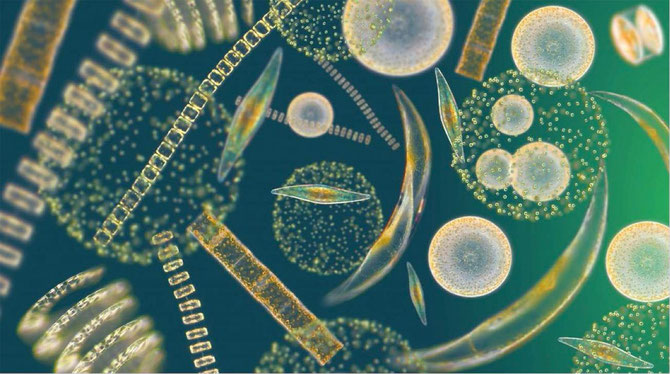Older posts:
Text from the European Comission: Changing oceans and seas: marine sustainability assessment
February 2016
Video showing zooplankton ingesting plastic!
August 2015
Plastic represents a real threat for our planet. Lately, a scientific team in Plymouth have pointed out the ability of zooplankton to ingest micro-plastics. They used copepods with fluorescent polystyrene balls. The copepods ingested these balls while filtering the water. These balls are normally egested but sometimes can stay up to 7 days in the intestines.
In addition to have consequences on the physiology of the animal itself, this plastic go up through the whole food chain until sometimes (or often) the final predator, which means us!
Just watch out!!
Everyone at sea can contribute to the marine science knowledge!
March 2013

Picture by Richard Kirby
An extremely enthousiastic, simple and just well-thought initiative from an English laboratory (Plymouth)!
"A simple tool and a free application to download in order to measure phytoplankton while on board any boat" If you are a fisherman or just a sea lover going often at sea, you have a chance a contribute! ;-))
This is clever, and a really good example of how to get involved the larger public in marine science issues!!!!! Congrats!
And of course, spread the word, especially if you are in touch with fishermen!
To explain what it is, the article from BBC:
http://www.bbc.com/news/science-environment-26483166
If you want to contribute!, where to download the app! ;-)
http://www1.plymouth.ac.uk/marine/secchidisk/Pages/default.aspx
Go to "Scientific gallery" section if you want to have a glimpse of how looks like a scientific cruise!